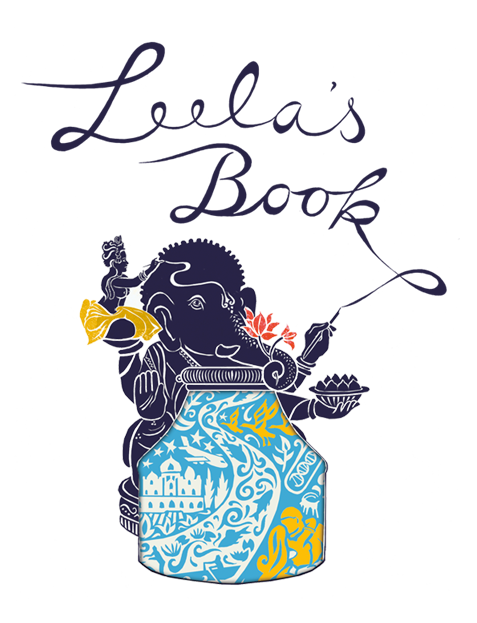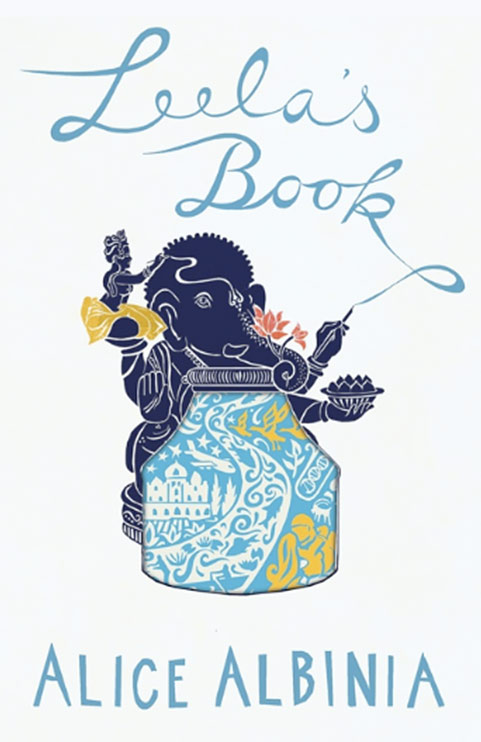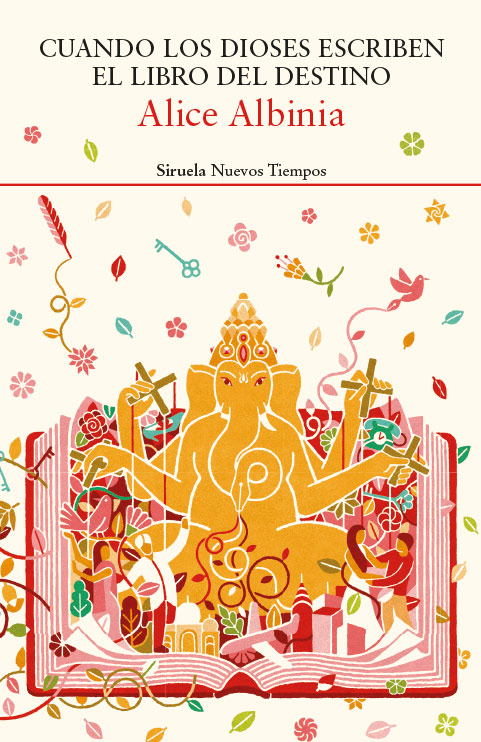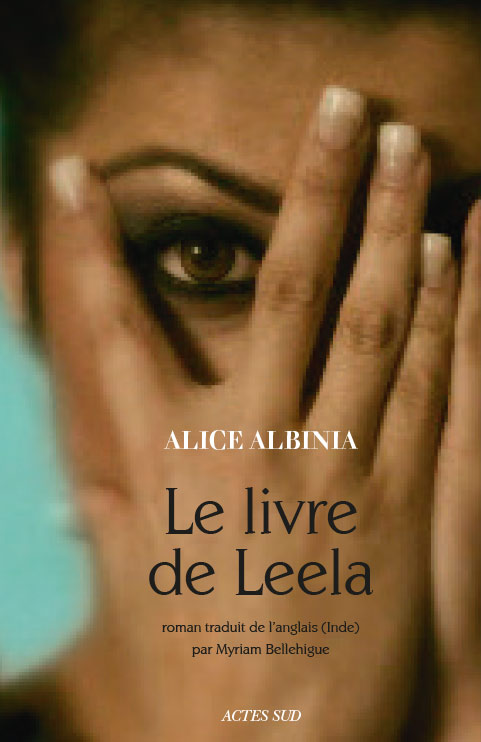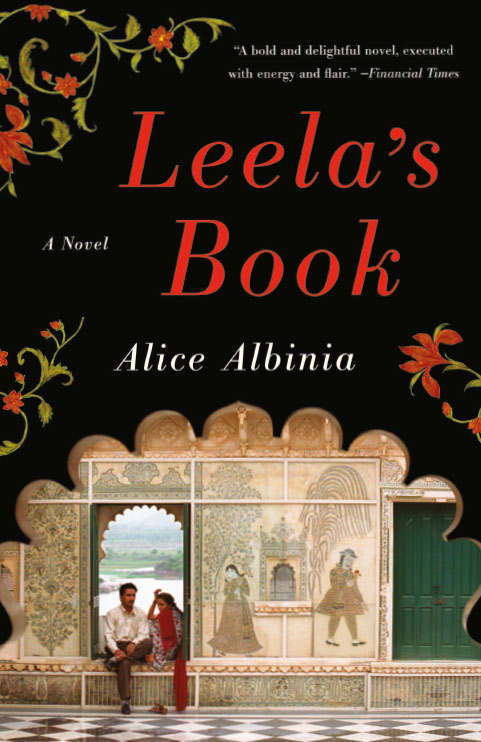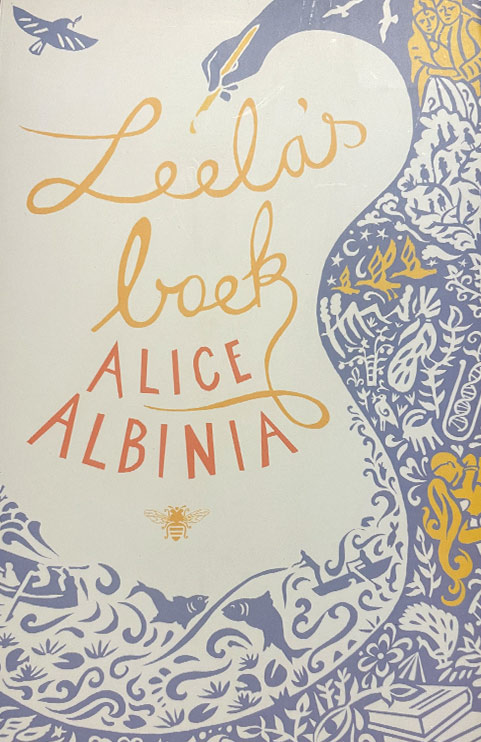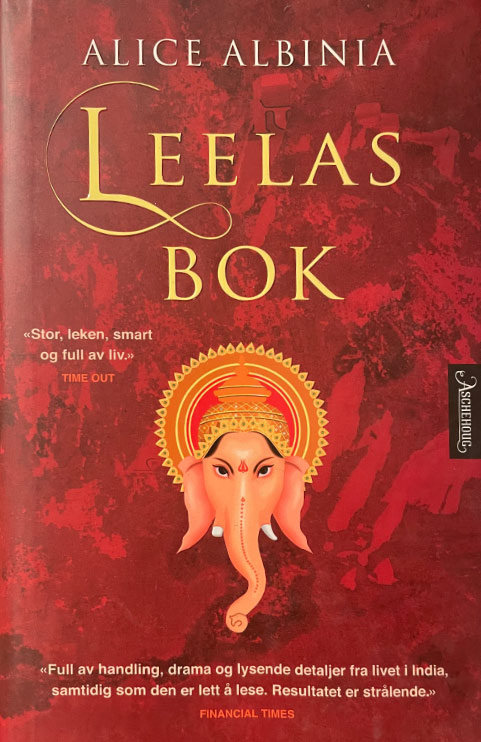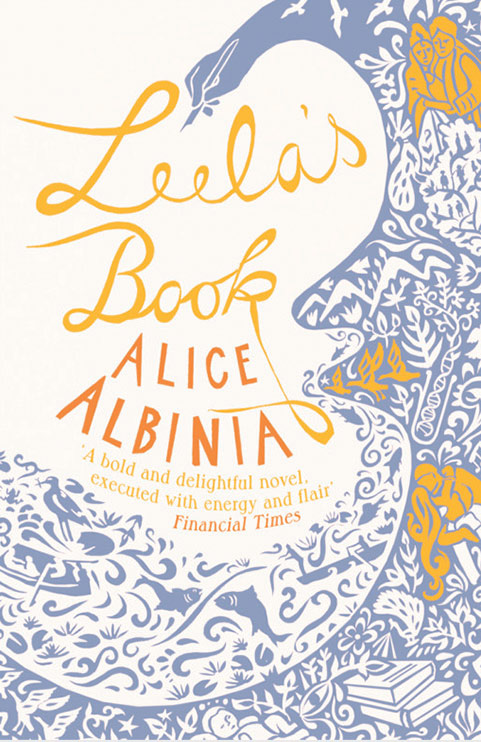“Alice Albinia writes with tender acuity, and without illusions, of her characters’ foibles. She brings that same unsparing, illuminating gaze to bear upon Delhi and India in this wise and lovely novel.”
— Amit Chaudhuri, author of The Immortals
“A compelling tale that weaves together the profound and the playful, the modern and the traditional, the secular and the mythological – all the strands that make up today’s India.”
— Manil Suri, author of The Death of Vishnu’
“An epic, polyphonic juggernaut of a first novel. Ambitious, skilfully plotted, and full of wonderful surprises. I was hooked from the very first page.”
— Tahmima Anam, author of The Good Muslim
“Like all the best family sagas, [Leela’s Book] is complicated… the strings are being pulled by Ganesh, the god with the elephant’s head. This is steeped in the tradition of the Indian epic, yet modern and vastly entertaining.”
— Kate Saunders, The Sunday Times
“Leela’s Book is a stimulating novel in which Albinia skilfully manages an intricate cast and an enormous, diverse cast of characters. Her immense historical acumen and sophisticated sense of culture have enabled her to craft a powerful tale about a place that isn’t exactly home turf.”
— Hirsh Sawhney, The Guardian
“In her very first novel, Alice Albinia has established herself as a powerful creative writer… masterful”
— Arif Waqar, The News
“A novel about rebirth, writing and Delhi, but also about crossing out of the place where you live and the fear of falling when you do… Leela’s Book is a perceptive, realist study about contemporary social relations in India, fitted into a whirling narrative of epic proportions”
— Raghu Karnad, TimeOut New Delhi
“A charming and capacious work of fiction that re-imagines the Mahabharata in New Delhi… and does so with skill and verve”
— Sanjay Sipahimalani, The Indian Express
“Ms Albinia’s fiction is playful and deep, threading contemporary social and religious aspects to a mythological one.”
— Sudha G Tilak, Business Standard
“For ten years now she has been an eager observer of the unfolding contours of our nation… Leela’s Book weaves a tale of contemporary Delhi across socio-religious boundaries, reaching back to the age of the Mahabharat. It talks of Vyas, Ganesh, and then makes allocation for modern social currents. It is both playful and inquisitive… Albinia has a way with stories”
— Ziya Us Salam, The Hindu
“Sprawling in scope, Leela’s Book is bold, playful, smart and lively… multiple family secrets explode in fireworks of star-crossed lovers, lost siblings and hidden birthrights. Albinia weaves her tapestry well… the characters come gloriously, tangibly to life.”
— Daneet Steffens, TimeOut London
“[E]liminate the Mahabharata from your consciousness when you read Leela’s Book (it’s just a distraction — remember, this book is allegedly based on Ganesh’s interpolations, not the Vyasa original), and what you get is a story about families, individuals, their personalities and their dilemmas — little Mahabharatas of India today. Albinia, the author of the excellent non-fiction book, Empires of the Indus, which followed the Indus river to its source, knows her India and writes with a casualness that goes beyond stereotypes.”
— Kushalrani Gulab, Hindustan Times
“The epic Indian poem, the Mahabharata, provides the template for this ambitious debut… A talent to look out for.”
— Stephanie Cross, The Daily Mail
“In Albinia’s capable hands, a tale of India, replete with nods to modernity, globalisation, poverty, sexuality, scholarship, and increasing religious fundamentalism, grapples with the mythological remnants of everyday life… this an enjoyable and satisfying book.”
— Harleen Singh, Biblio: A Review of Books
“[W]hat makes the book special is that the underlying narrative delves into the dream state… It conjures up the collective consciousness that layers our lives… Albinia has made a remarkable transition from being a writer of non-fiction… into a storyteller who has plotted a racy tale about love and loss and the human condition, where there is never really an end or a beginning”
— Namita Devidayal, The Times of India (Crest Edition)
“Alice Albinia’s new novel, Leela’s Book, is part fable, part reality and part mythological muddle that effortlessly takes the reader on a rollercoaster romp through the centuries, accompanied by a disgruntled Ganesh, the elephant-headed son of Shiv and Parvati… a clever and complicated novel”
— Kishwar Desai, India Today
“Leela’s Book bursts with all the burning issues of an Indian metro, among them the persisting social stigma for a Hindu marrying a Muslim and the ever-present class divide — Nizamuddin provides a great cross section for both with its pucca shanties and swank homes and the people of each sustaining the other…. Albinia is a keen and incisive observer… whacky, resourceful and entertaining. Leela’s Book is a novel to reread.”
— Sunrita Sen, Deccan Chronicle
“A family drama of Victorian proportions… a novel about gods, humans and family skeletons… a playful modern iteration of the story surrounding the Mahabharat: of Vyasa, the women who were to become the originators of the epic’s principal dynasties, and a snarky elephant-headed god who demanded some stage time of his own”
— Supriya Nair, Mint
“Leela’s Book is… an exploration of storytelling and the art of unravelling a plot… characters and their lives mesh together to create a vivid portrait of contemporary Delhi with its glossy façade and undercurrents of unexpected cruelty and kindness.”
— Deepanjana Pal, Mumbai Boss
“The novel has a palpable indigenous essence… The book is unlike an observer’s account of India; it assumes the characteristic of the author being part of the fabric of the story, as though having being written by someone born and brought up in India.”
— Vandana Sebastian, The Sunday Guardian
“In Leela’s Book, Alice Albinia allows her imagination to flow as expansively as the Indus”
— Catherine Rhea Roy, The Hindu
“While the book is a real feast with tidbits of the epic and Delhi life intersecting beautifully, what is outstanding is Albinia’s uncanny knack of observing new places and practices.”
— Ullekh NP, The Economic Times
“Leela’s Book paints a vivid picture of Delhi… What’s amazing is that after barely two years in Delhi, she managed to build up a huge understanding of modern Indian lives and attitudes.”
— Paran Balakrishnan, The Telegraph (Calcutta)
“Alice Albinia has decided Lord Ganesha must receive some recognition. He toiled, broken tusk in one of his four hands, writing an infinite epic, dictated by the bearded Vyasa. British author Albinia wrests authority from the sage and bestows it on the “misshapen son of Lord Shiva and Parvati”… in her first novel Leela’s Book”
— Nandini Nair, The Indian Express
“The tone of the novel is quite tongue-in-cheek, yet it captures the larger canvas of Hindu-Muslim relations in a big city”
— Priya Kumari Rana, Harper’s Bazaar (Mumbai)
“The story of Delhi in the early part of the last decade is told through a cast of characters and a series of locales that will be instantly recognizable… the liberal academic society Delhi family and the conservative traditional Hindu family portrayed in the novel are entangled in many, many ways.”
— Tripti Lahiri, Wall Street Journal
“In the story two parallel threads – the familial developments in the life of Leela Bose; and the epic authorship of Lord Ganesh – intersect in a manner that is at once supernatural and perfectly natural in the Indian context, a country where life on earth is thought to be regularly manipulated by the gods.”
— Sanchita Guha, Marie Claire
“Leela’s Book… takes you down familiar paths, only to surprise you at the end… The resulting story is that of urban India where pomp and glamour hide the darkest of secrets… A book that is a chaotic yet delightful read.”
— Kiran Manral, People
“An enticing tale filled with colorful characters and surprising twists.”
— Kristine Huntley, Booklist
